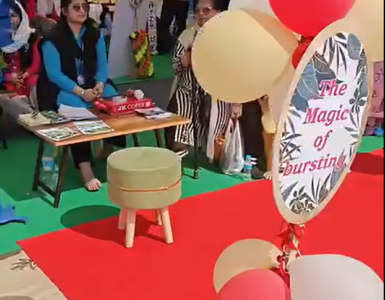Little Aman eagerly approached her grandmother with a question. “Grandma, can you tell me some amazing stories about Sikh women?”
With a warm smile, Grandma began, “Of course, Aman. Sikh history is filled with incredible women whose courage and contributions have shaped not only the Sikh community but the broader society as well. Let me tell you about ten remarkable Sikh women whose stories of bravery and impact continue to inspire.”
1. Bebe Nanaki (1464-1518)
“First, there’s Bebe Nanaki,” Grandma started. “She was Guru Nanak Dev Ji’s elder sister and the epitome of devotion and support. Born in Chahal village, she was the first to recognize her brother’s divine calling and became his steadfast companion on his spiritual journey. Bebe Nanaki truly embodied the essence of Sikhism with her love and compassion.”
2. Mata Khivi (1506-1582)
“Next is Mata Khivi,” Grandma continued. “She was Guru Angad Dev Ji’s wife and is celebrated for pioneering the tradition of langar, the community kitchen that serves free meals to everyone, regardless of caste or status. Her selfless service laid the foundation for this important Sikh practice that continues to inspire millions.”
3. Mai Bhago (Late 1600s – Early 1700s)
“Mai Bhago,” Grandma said, “was a symbol of courage and resilience. In 1705, she led a group of 40 deserters into battle against Mughal forces, earning them the title ‘Chali Mukte’ or ‘Forty Liberated Ones.’ Her commitment to justice and righteousness remains a timeless example of bravery.”
4. Rani Sada Kaur (1762-1832)
“Rani Sada Kaur,” Grandma explained, “was a formidable leader and strategist who played a key role in the establishment of the Sikh Empire. She was a key advisor to Maharaja Ranjit Singh and helped shape the course of Sikh history with her military and political acumen.”
5. Maharani Jind Kaur (1817-1863)
“Maharani Jind Kaur,” Grandma told Aman, “was the wife of Maharaja Ranjit Singh and became a fearless leader in the fight against colonial oppression. She is remembered as the first female freedom fighter in India’s struggle against British rule.”
6. Amrita Pritam (1919 – 2005)
“Amrita Pritam,” Grandma added, “was a renowned poet and writer who transcended cultural boundaries with her profound verses. Her writings challenged societal norms and advocated for gender equality, leaving a powerful legacy through her literary work.”
7. Dr. Inderjit Kaur (1942 – Present)
“Dr. Inderjit Kaur,” Grandma said, “has dedicated her life to serving the marginalized and vulnerable. As the President of the Pingalwara Charitable Society, she has transformed many lives through her leadership and commitment to social justice.”
8. Prakash Kaur (1951 – Present)
“Prakash Kaur,” Grandma continued, “founded a home for abandoned girls in Punjab. Her dedication to providing care and opportunities to those who had been cast aside by society highlights her compassion and resilience.”
9. Amrit Singh (1969 – Present)
“Amrit Singh,” Grandma shared, “is a prominent civil rights lawyer known for her fearless advocacy for human rights. She has fought against state-sponsored torture and discrimination, holding governments accountable and championing justice.”
10. Dr. Anarkali Kaur Honaryar (1984 – Present)
“Finally, there’s Dr. Anarkali Kaur Honaryar,” Grandma concluded. “She made history as a member of Afghanistan’s parliament, fighting tirelessly for the rights of women and minorities. Her leadership and advocacy for equality and justice serve as a beacon of hope.”
“These women,” Grandma said with a smile, “not only achieved greatness in their own lives but also exemplified the values of Sikhism. Their stories remind us of the limitless potential within each of us to create positive change.”
Aman listened intently, inspired by the stories of these remarkable women and their lasting legacies.













Add comment